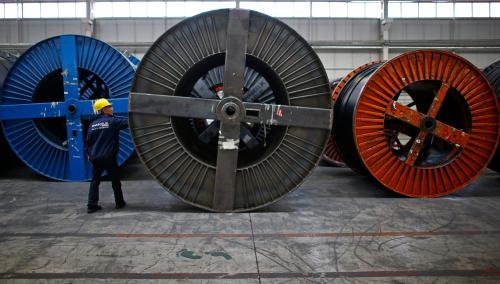First on my reading list this week is Justin Wolfers’ column about Alice Wu’s paper on the stark differences in references to men and women in the anonymous website, Econ Job Market Rumors, which unleashed a firestorm of comments. The paper could have been dismissed as documenting the puerile remarks of the younger generation. Instead, it shined a light on the widespread and deep sexism that seems to permeate the economics profession. Referring to the story about the two female Silicon Valley entrepreneurs who had to invent a male partner in order to get recognized, Maya Sen, a professor at Harvard Kennedy School tweeted, “I sometimes have male co-authors submit papers to journals for this very reason.” Diane Coyle has a useful synopsis of the discussion that followed Wolfers’ paper. In terms of remedies, Richard Baldwin posted what his think tank, the Center for Economic and Policy Research, has been trying to do. A good start, but we all need to do more soul-searching and act.
Two unrelated papers that caught my eye seem to be making a similar point. The first looks at the long-run effects of trade protection in mid-19th century France on education, finding a negative relationship. The rents from trade protection served as a disincentive to invest in human capital. The second is a striking paper by Raphael Franck and Oded Galor that shows that those areas that benefited from the industrial revolution had a lower quality of life 50 years later. The common theme is that windfalls, whether policy- or technology-induced, can distort incentives to invest in long-term welfare.
Finally, some recent research by Imran Rasul and Dan Rogger calls into question the traditional view of public sector incentives, namely, that it’s all about holding public servants accountable. Comparing mid-level bureaucrats’ performance in Nigeria and Ghana, they conclude that giving these public servants greater autonomy, rather than tying their hands, may improve their productivity.






Commentary
Future Development Reads: Misogyny in economics, short-term growth and long-term decline, and what makes bureaucrats productive
September 8, 2017
Shanta Devarajan shares what he’s been reading this week including a column on misogyny in economics, papers on trade protection, and research on the affect of public sector incentives on productivity.